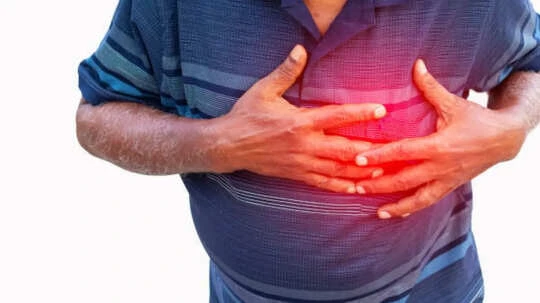Mornings are not just the perfect time to set the tone of your entire day, but also help you stay active. According to experts, how you treat your body right after waking up can be a big influence on your heart health.
While mostly heart attacks and strokes happen due to spikes in blood pressure and stress hormones like cortisol in the early hours, there are a few daily habits that make your body extremely vulnerable.
Doctors say there are a few important things you need to stop doing to slow any kind of risk to your heart.
Not drinking water
Being around 60 per cent water itself, your body mostly relies on water to function properly. Not consuming enough of it can have many effects on your health and well-being, mainly your heart. If you are even mildly dehydrated, your heart goes into overtime to pump blood through your veins and arteries – as dehydration spikes the volume of blood circulating through your body. With less volume and a higher sodium content, blood becomes thicker and does not flow as freely as it does when you drink plenty of water.
To keep the blood moving, your heart rate increases, and blood pressure drops, too, which can cause complications like fainting.
Not warming up before workouts
Not doing any kind of warming-up exercises before heavy-duty workouts can negatively impact your heart health, as it places sudden and strenuous demands on the cardiovascular system. According to doctors, if you start working out right after waking up, it can cause abnormal stress on the heart muscle and potentially lead to a dangerous drop in blood pressure.
And so, you need to follow a proper warm-up regime which can gradually increase your heart rate, improve blood flow and oxygen delivery to muscles – allowing the heart to gently transition from rest to activity.
Not checking blood pressure levels
Those who have a blood pressure issue must take note regularly. High blood pressure – also known as the “silent killer”- can put you at a high risk, as mornings are when readings spike most often.
Skipping a simple morning check can mean that you may miss the early signs, which can be disastrous in the long run.
Eating a high-sodium, calorie breakfast
Breakfast sets the tone for your upcoming day, and so, it should be healthy to keep you not just fit but also active. Eating sodium and salt-packed junk food for breakfast can put extreme pressure on your heart health in the long run.
According to studies, salty breakfasts can trigger morning surges in blood pressure, a critical time window when heart attacks are more likely.
Not eating anything
Not eating overtly salty breakfasts does not at all mean skipping morning meals altogether. According to studies, not eating breakfast spikes the risk of heart attacks and strokes – due to its association with higher rates of obesity, hypertension, high cholesterol, and diabetes. Regularly consuming a healthy breakfast regulates blood pressure, manages blood sugar, and maintains a healthy weight.
Doctors say your body needs steady fuel in the morning to balance blood sugar and prevent vascular stress.
